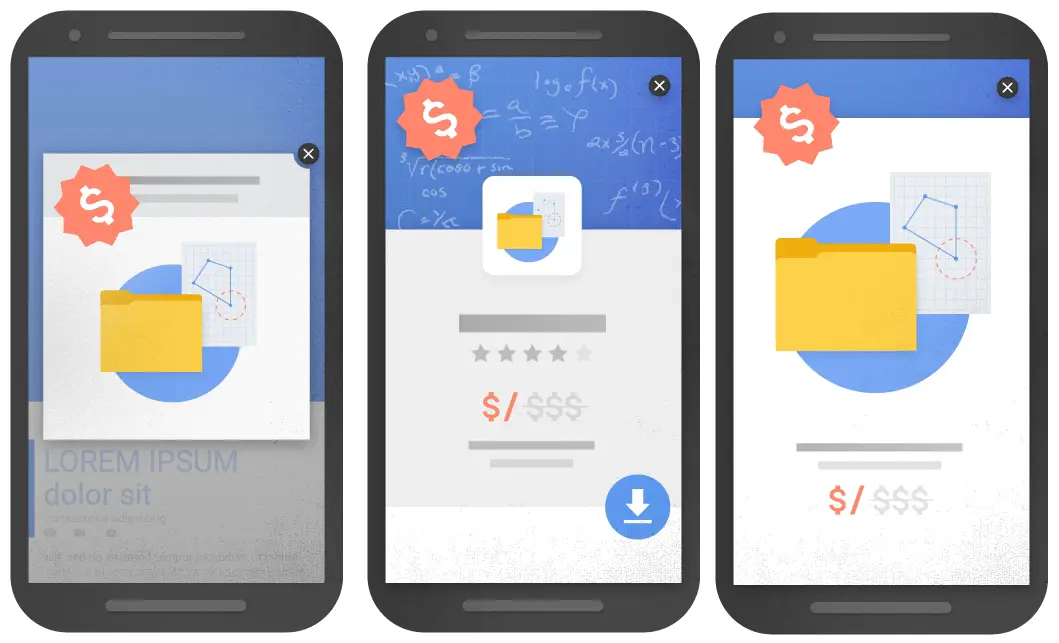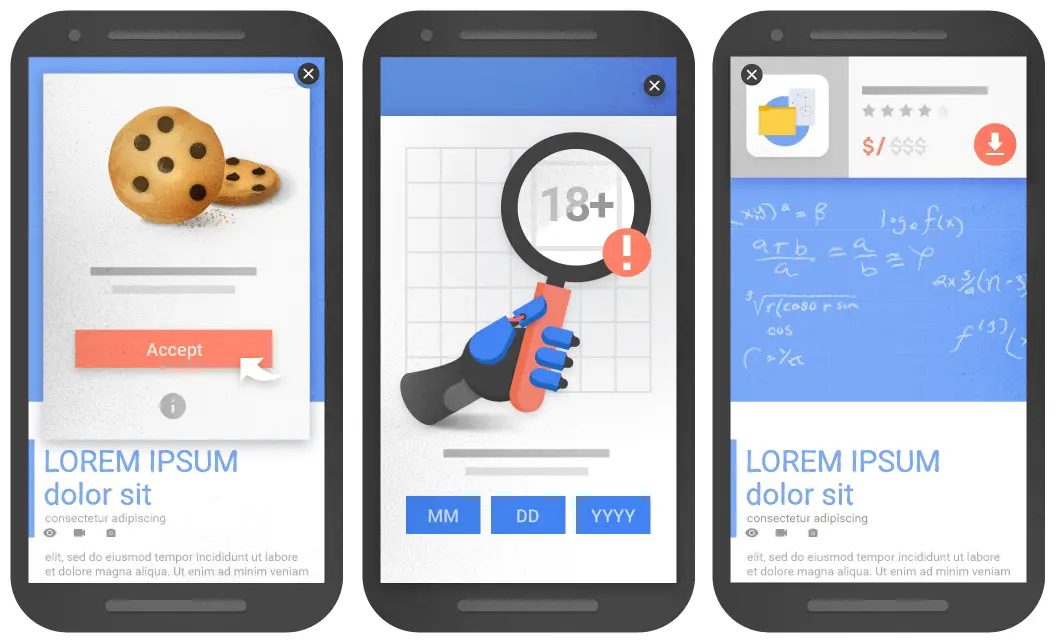Chances are good if you’ve ever been browsing the internet on your phone, you’ve come across websites with obtrusive advertising. More specifically, you’ve probably seen pop-up ads that show up before the page content even loads, or sometimes immediately afterwards. Many of us — except for maybe the sites that are running those types of ads — would agree that this behavior severely diminishes the mobile browsing experience. Thankfully, Google agrees. After January 10, 2017, Google will begin to lower the search rating for sites that use interstitial pop-up advertising in a way that causes a poorer browsing experience.
Google has outlined a few different types of behavior that will cause a site’s search rating to drop, which are also outlined in the screenshot below:
- Showing a popup that covers the main content, either immediately after the user navigates to a page from the search results, or while they are looking through the page.
- Displaying a standalone interstitial that the user has to dismiss before accessing the main content.
- Using a layout where the above-the-fold portion of the page appears similar to a standalone interstitial, but the original content has been inlined underneath the fold.
On the other hand, they also pointed out some behavior which, while resulting in an interstitial pop-up, will not be grounds for dropping a search rating (also nicely displayed in screenshot form):
- Interstitials that appear to be in response to a legal obligation, such as for cookie usage or for age verification.
- Login dialogs on sites where content is not publicly indexable. For example, this would include private content such as email or unindexable content that is behind a paywall.
- Banners that use a reasonable amount of screen space and are easily dismissible. For example, the app install banners provided by Safari and Chrome are examples of banners that use a reasonable amount of screen space.
They were also quick to note that obtrusive pop-up ads won’t necessarily lead to a complete dismissal of a site’s content. If the site still has quality content in an area that a user has searched for, the result will still be returned, obtrusive advertising or not.
What do you think about Google’s quest to provide a better mobile browsing experience? Let us know in the comment section below, or on Google+, Facebook, or Twitter.
[button link=”https://webmasters.googleblog.com/2016/08/helping-users-easily-access-content-on.html” icon=”fa-external-link” side=”left” target=”blank” color=”285b5e” textcolor=”ffffff”]Source: Google Webmasters[/button]











